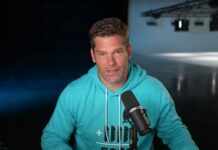The same Spirit that inspired the Scripture to identify race also provides the strength to overcome its challenges. Both our worship and our witness are made more perfect when we model gospel-centered diversity.
At the cross, there is “no Jew or Greek, slave or free, male or female.” Yet at the throne there are men and women from “every tongue, tribe, and nation.” We would do well to remember both.
Spend time listening to the perspective of people from other races.
Hearing the stories of people of races different than our own can help us gain a perspective that resembles reality more than the stories we know so well. It’s not a threat to our American heritage to recognize different perspectives on our history or to note the scars in our story.
For instance, American children have been taught for generations about the Pilgrims and how people came to America to seek freedom to worship. That is a true part of the story.
But that’s not the whole story.
Many Americans today have ancestors who came from Africa on a different boat than Europeans who came here seeking freedom. The Mayflower sailing westward represents many who sought a new day, but slave ships introducing generations to bondage also sailed across the Atlantic to the new world.
We also must be honest about the mistreatment of Native Americans and the suffering that is real on many reservations today. We can recognize the many positive events in the history of the United States while also acknowledging the negative ones.
We who stand on the truth of the Word of God can also stand for honest history. We don’t need to ignore the brokenness of our past; in fact, just as in our personal lives, the more honest we are about ourselves and our past, the greater opportunity we have to be healed.
It is not a denial of God’s work in the Great Awakening to also recognize that Jonathan Edwards and George Whitefield were wrong on the issue of slavery. Nor is it a Calvinist-Arminian issue to affirm John Wesley was right about slavery while heroes like Edwards and field were not. These are difficult and complex issues.
Part of my hope is that many will ask, “Why are African Americans responding differently than the majority culture?”
That’s listening.
When we think of the names like Trayvon Martin, Breonna Taylor, Philando Castille, Michael Brown, Eric Garner, George Floyd, and more, I think it is of utmost importance that all Christians, but specifically white evangelicals, talk a little less and listen a little more.
Resist heated exchanges while oversimplifying complex issues.
Ours is a day of overheated rhetoric and a lack of civility.
Reducing complex issues to soundbites or stereotypes on social media or in public speaking only adds to the divide we now face. Critical Race Theory is a complex approach coming not from the church but from the legal world. Oversimplifying it or generalizing it to represent all people who speak up for racial reconciliation helps no one. Neither does discussion marked by heated or angry rhetoric.
That’s why we have posted at least ten articles on the subject, available here.
Accusing someone who speaks up for minorities of being a liberal is silly — doing so does not make that person a CRT advocate or a social justice warrior. You can recognize the problems of applying CRT minus a biblical lens without turning every discussion on race into a moratorium on CRT.
For many white people, racial events are about an incident. Yet, for many African Americans, it’s about a system. It’s worth listening to why people are responding differently in situations like this.
This means we will resist demonizing those who are different from us or see things from a different perspective. A person speaking up on issues of race is not a Marxist, and a white person who has yet much to learn on this issue is not a Klansman.
Martin Luther King, Jr., explained in his letters from a Birmingham jail, real change “comes through the tireless efforts and persistent work of men willing to be coworkers with God, and without this hard work time itself becomes an ally of the forces of social stagnation.” Today, I’d encourage you to take a moment and ask what persistent work you might do to break down some walls for the glory of God.
Conclusion
Today, in USAToday, I shared my hope that we might do better. You see, race matters. It’s time for evangelicals to give evidence to show this to all. The verdict awaits.
Let’s follow Josh’s example and learn from his humility.











